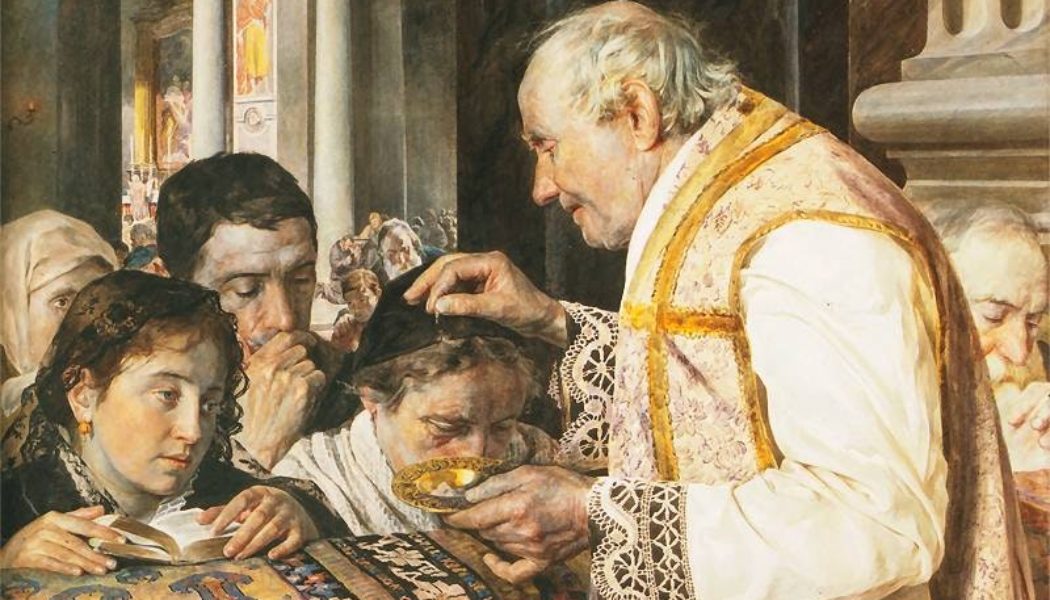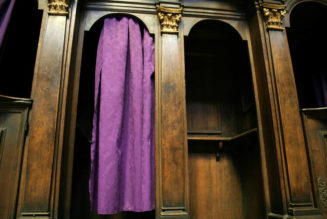
Laxism is a moral position that in a position of doubt tends to the easiest or least demanding alternative. Christians certainly suffer from this position, but I want to focus rather an the general laxity of the practice of penance, which continues to wear thin with almost nothing expected of Catholics any longer. The thinking in the last sixty years has been that after a period of excessive “legalism” the Church has been merciful to Catholics by not expecting too much of them. Some say, if we have high expectations, it will simply lead people into sin by failing to meet those standards.
Let’s look at what has happened as a result.
Since we are in the season of Lent, this is one of the most glaring examples. Lent began as an all day fast for an entire forty days, with no wine, oil, or animal products allowed in the one meal after sunset. Over time the Church allowed a collation (or snack) around noon. Although some fasting was expected each day, expectations were lessened in the early twentieth century to allow some meat at one of the meals on some days. After Vatican II, only two days of fasting remained in the entire year, even though two collations are allowed on those days. There isn’t one day of fasting left that would compare to the original Lent.
The same thing happened to the fast before receiving the Eucharist. It traditionally began from midnight the night prior, and then was lessened to three hours by Pius XII, and now is only one hour before receiving Communion, which, on a Sunday, is almost no time before Mass begins. The Eucharistic fast has almost disappeared.
Other practices of penance have become optional. When the US Bishops allowed another penance to substitute for abstinence from meat on Fridays, they said they hoped most Catholics would continue the practice voluntarily. We know that the Friday penance has almost completely disappeared in the United States (even though it is still in Canon Law, subject to Bishops Conferences). Other optional practices have also vanished, such as the penance of Ember Days and Vigils, which are now also regulated by Bishops and virtually non-existent.
If we look at tithing and almsgiving as a kind of penance, a sacrifice of financial means, we could say the same in this area. The Church had longstanding, concrete expectations for the financial giving of Catholics, often supported by civil law, although now, Catholics are known for giving very little. Some might respond that this is a responses to the abuse scandals in the Church, although the drop in Catholic giving precedes this crisis. And, we must remember that tithing and almsgiving are spiritual practices and directly relate to the spiritual life, not matter what one thinks of the managing of finances by the Church (which is not to excuse corruption).
Where will this slide end?
I think there are only two options. The first we see already. This laxity can lead to the elimination of long held practices in the Church, which simply disappear and fade from memory. This has been the experience of the last few decades. The other option is for the Church to begin to set the expectations higher, realizing that laxity in penance has led to an erosion of the Christian life. The Bishops of England and Wales returned to the Friday penance of abstinence from meat in recent years, which is one hopeful sign of renewal.
Keeping expectations extremely low, leads to a low level of practice and growth. Expect little, get little or nothing in return. It is not mercy to keep standards so low that the average Catholic is not pushed to make any real sacrifices and to grow in the spiritual life. The fiction writer, Flannery O’Connor, understood the logic of real penance in spiritual growth, praying “give me the strength to stand the pain to get the grace.” No pain, no gain also holds in spiritual growth. We have sheltered Catholics from the suffering that comes from sacrifice only to find an anemic Church. In a culture saturated with comfort and luxury, we need penance more than in the past; not less of it.
We must end laxity before our laxity continues to end a robust life of faith in the Church. The health of the moral and spiritual life is bound up with our exterior practice, because we are body-soul unities. Perhaps overcoming laxity in regards to penance will also enable us to overcome our moral laxism. Renewal within our lives and in the Church may just begin by rediscovering the power of penance.







